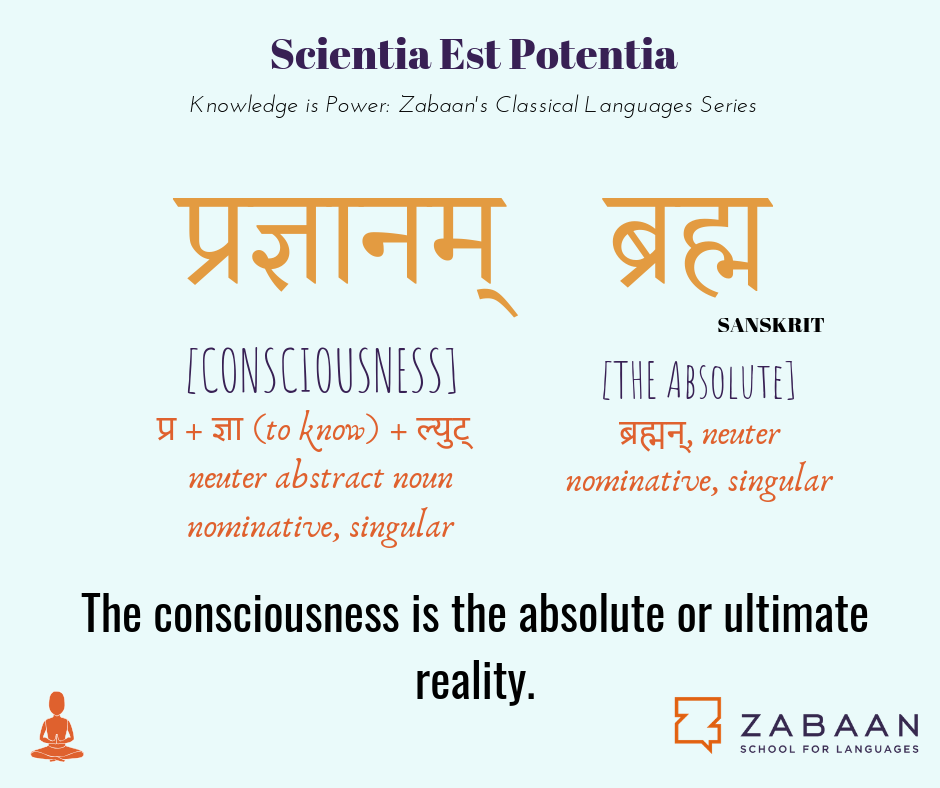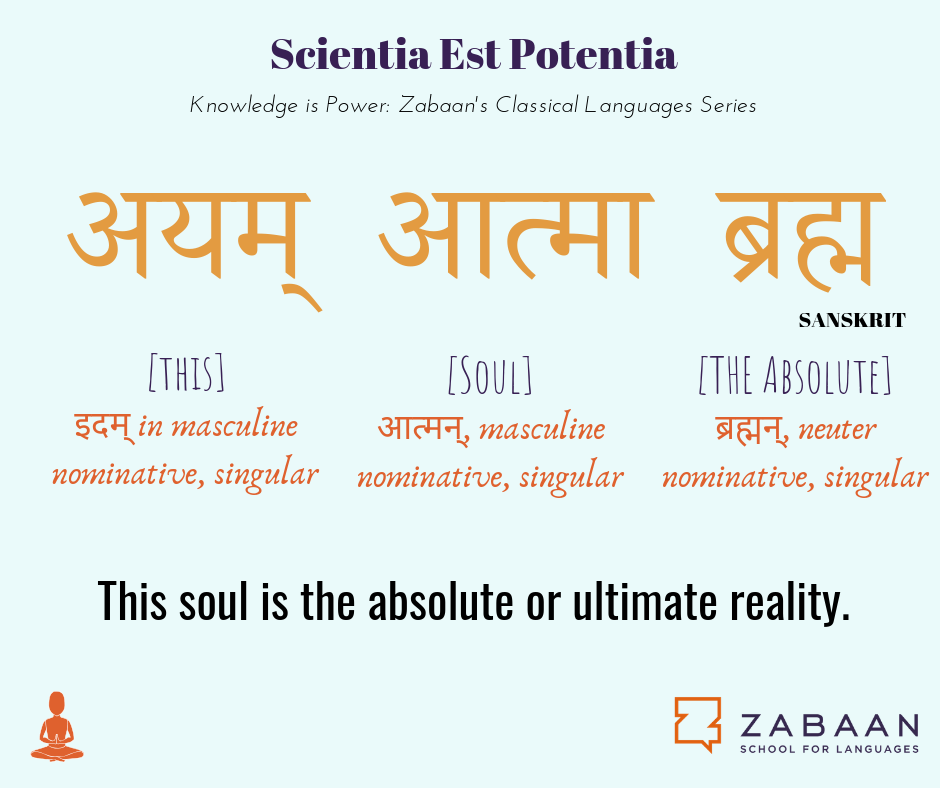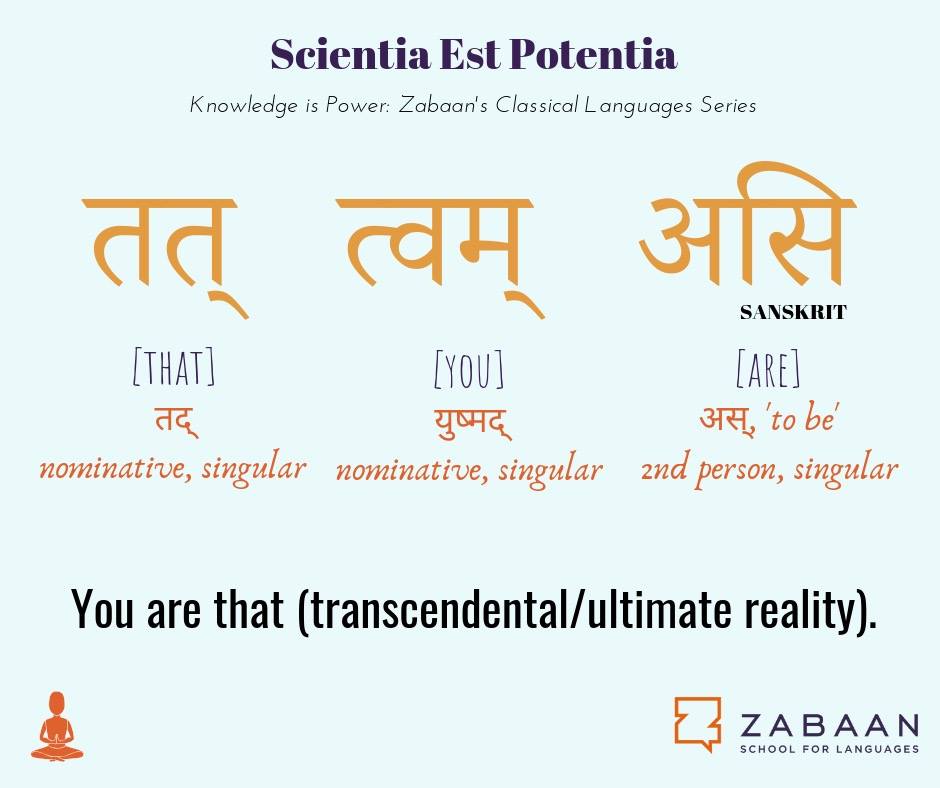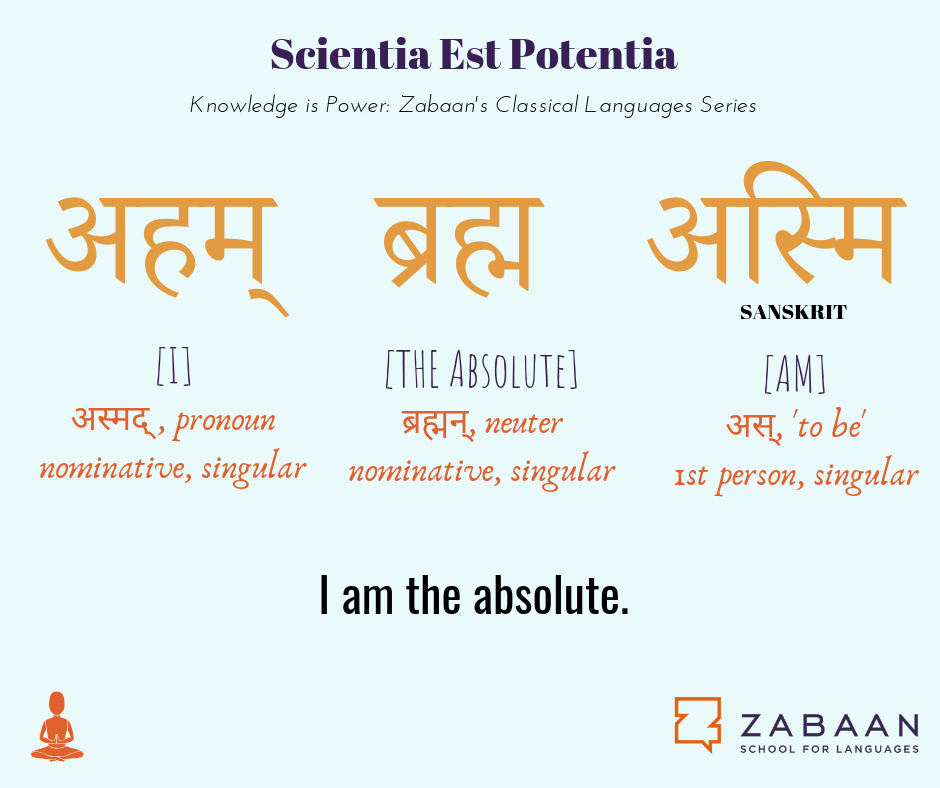The Upanishads are a repository of some of the finest and most intricate thoughts and sayings in the Indian philosophical and spiritual tradition. Of these, traditionally, four sayings (vākya), one from each of the Vedas, are said to sum up the essence of all the Upanishads. They are together called the Four Mahāvākya-s (great sayings or sentences).
These Mahavakya-s establish the unity of the individual with the divine or the absolute which is called ब्रह्म (brahma) in Sanskrit, the principal cause and basis of all that exists. It comes from the root बृंह् which means ‘to grow’ or ‘to spread’.
The Four Mahāvākya-s are:
- प्रज्ञानम् ब्रह्म (prajñānam brahma) – “Prajñāna is Brahman” from the Aitareya Upanishad of the Rig Veda
- अयम् आत्मा ब्रह्म (ayam ātmā brahma) – “This Self (Atmā) is Brahman” from the Mandukya Upanishad of the Atharva Veda
- तत् त्वम् असि (tat tvam asi) – “You are That” from the Chandogya Upanishad of the Sama Veda
- अहम् ब्रह्म अस्मि (aham brahmāsmi) – “I am Brahma” from the Brihadaranyaka Upanishad of the Yajur Veda
We have explained the meanings of each of the Mahāvākya-s below:
The first Mahāvākya states that our consciousness, the faculty by which we know we exist and other things exist, is itself the absolute reality. In essence, “the stuff that the world is made of” is consciousness.
A quick grammar bite! Notice that the verb ‘is’ can be implied in a nominal sentence, ‘the consciousness is brahma’.
This Mahāvākya establishes the identity between the self or the soul and the absolute reality, brahma. While with prajñānam brahma, the absolute is identified as consciousness that is spread everywhere, that is omnipresent, ayam ātmā brahma, talks about our personal experience of the absolute. When we ask, how do we reach the absolute, how do we experience the ultimate truth, the answer is that it resides within us as our soul.
Attention grammar enthusiasts! Notice the difference is the nominative singular form of न् ending masculine (आत्मन्) and neuter (ब्रह्मन्) nouns. आत्मन् which is masculine becomes आत्मा ending in long आ in the nominative singular while ब्रह्मन् which is neuter changes to ब्रह्म ending in short अ.
Spirituality is often seen as the search of God or some transcendental principle that can explain the universe and everything in it. It makes some of us undertake a journey outside of ourselves to figure out this ultimate/absolute truth. The Upanishadic seers, however, exhort us to witness and experience the absolute within ourselves by saying tat-tvam-asi–you are that, you are the transcendental reality you seek, you are not separate from the timeless and eternal truth, you are that truth.
This Mahāvākya sums up the experience of the ultimate within oneself and can be looked as the final destination of all spiritual seekers. In the end, the Upanishads say, we realise that अहम् ब्रह्म अस्मि—I am the absolute reality.
Featured Image Credit: Pixabay






Thanks for the summary. Stay blessed 😇
Thanks. Stay blessed
What is nothingness in the Vedas ?
जीवन दर्शन : स्वयं ब्रह्म
Very nice
Bahuuttamam